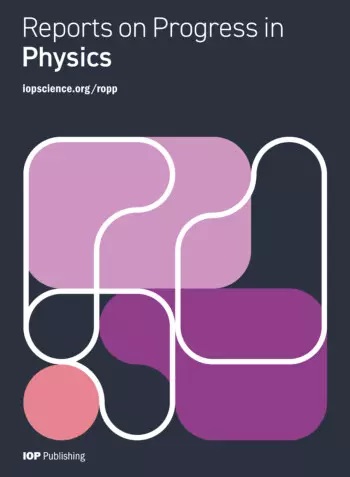切碎随机基量子最优控制的十年研究
IF 20.7
1区 物理与天体物理
Q1 PHYSICS, MULTIDISCIPLINARY
引用次数: 44
摘要
用于量子最优控制的切碎随机基(CRAB) ansatz已被证明是实现量子计算、量子模拟、量子传感和量子通信等量子技术应用的通用工具。它的能力包括实验限制,同时保持对通常无陷阱的控制环境的访问,并从开环切换到闭环优化(包括远程访问或RedCRAB),这有助于在许多不同的物理平台上发展量子技术。在这篇综述文章中,我们介绍了这种优化算法的发展,理论基础和工具箱,以及利用这种强大技术的广泛不同理论和实验应用的概述。本文章由计算机程序翻译,如有差异,请以英文原文为准。
One decade of quantum optimal control in the chopped random basis
The chopped random basis (CRAB) ansatz for quantum optimal control has been proven to be a versatile tool to enable quantum technology applications such as quantum computing, quantum simulation, quantum sensing, and quantum communication. Its capability to encompass experimental constraints—while maintaining an access to the usually trap-free control landscape—and to switch from open-loop to closed-loop optimization (including with remote access—or RedCRAB) is contributing to the development of quantum technology on many different physical platforms. In this review article we present the development, the theoretical basis and the toolbox for this optimization algorithm, as well as an overview of the broad range of different theoretical and experimental applications that exploit this powerful technique.
求助全文
通过发布文献求助,成功后即可免费获取论文全文。
去求助
来源期刊

Reports on Progress in Physics
物理-物理:综合
CiteScore
31.90
自引率
0.00%
发文量
45
审稿时长
6-12 weeks
期刊介绍:
Reports on Progress in Physics is a highly selective journal with a mission to publish ground-breaking new research and authoritative invited reviews of the highest quality and significance across all areas of physics and related areas. Articles must be essential reading for specialists, and likely to be of broader multidisciplinary interest with the expectation for long-term scientific impact and influence on the current state and/or future direction of a field.
 求助内容:
求助内容: 应助结果提醒方式:
应助结果提醒方式:


